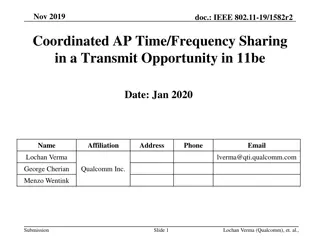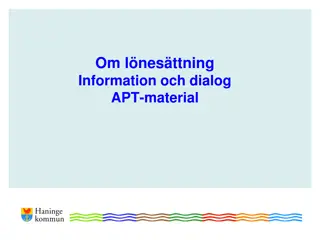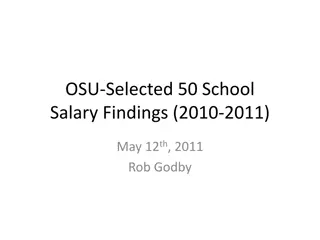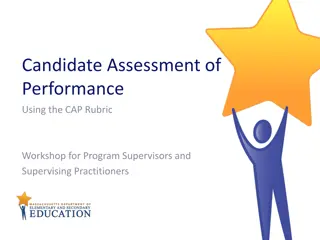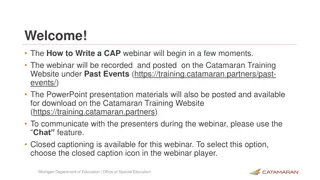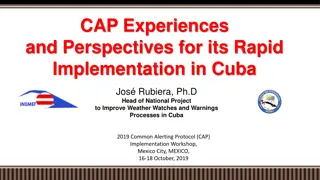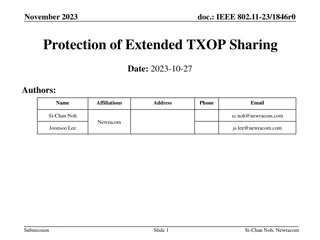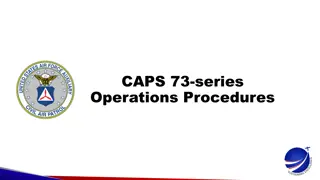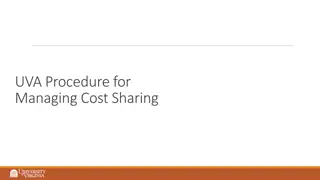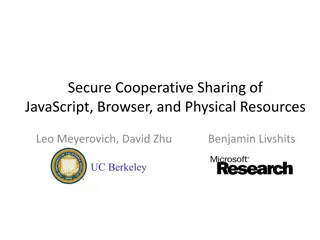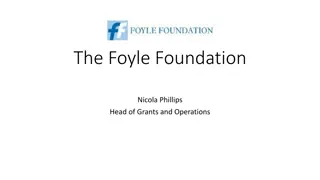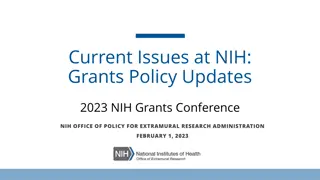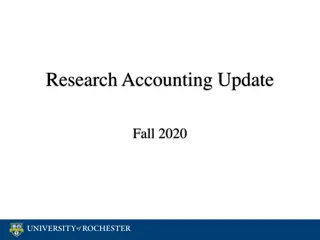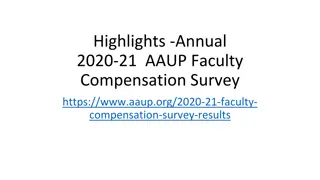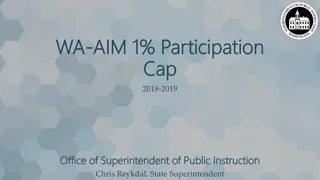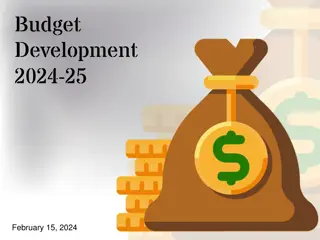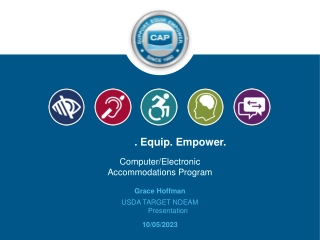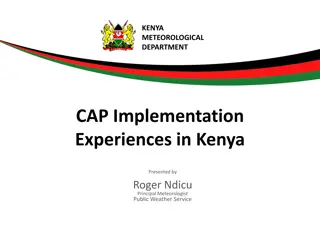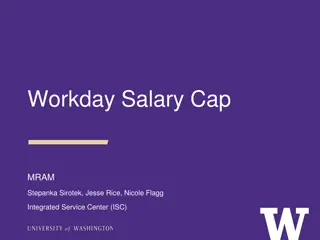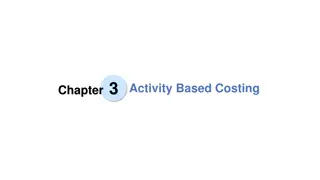Understanding Salary Cap and Cost Sharing in Research Grants
Salary cap in research grants is the maximum allowable difference between what is charged and the cap set by NIH. This ensures cost-sharing responsibilities are met appropriately. Key points include FY vs. AY salary, different levels of salary caps for fiscal years, and the establishment of new award sponsor accounts. Understanding these concepts is crucial for managing research funding effectively.
Download Presentation

Please find below an Image/Link to download the presentation.
The content on the website is provided AS IS for your information and personal use only. It may not be sold, licensed, or shared on other websites without obtaining consent from the author. Download presentation by click this link. If you encounter any issues during the download, it is possible that the publisher has removed the file from their server.
E N D
Presentation Transcript
Salary cap is the difference between what is charged and the cap which is allowed by NIH Example (FY): PI Salary: $250,000 NIH Cap (2011): $199,700 100% Effort Monthly Sal: $20,833 Monthly Cap: $16,642 **Difference: $4,191 (Amt to be Cost Shared) 10% Effort Monthly Sal: $2,083 Monthly Cap: $1,664 **Difference: $419 (Amt to be Cost Shared)
Things to remember: Direct Salary, Salary, and Institutional Base Salary hold the same meeting in relation to the NIH salary limitations Institutional Salary is the individual s annual compensation that the organization pays for their appointment Salary cap, as listed by NIH, is noted as FY Salary, not AY
FY 2011 Salary Cap Fiscal Year Employee: $199,700 Academic Year Employee: $149,775 Or $16,642 monthly salary
FY12 Salary Cap Executive Level II ($179,700 FY; $134,775 AY; Monthly Salary $14,975) Effective with awards issued on or after December 23, 2011. FY 12 funds issued prior to this date will be calculated with the old rate of $199,700 (FY). Carry over funds from previous years will remain at the salary limitation level in effect at the time those awards were issued.
New Award Sponsor Accounts and Salary Cap Cost Share Accounts will be established and utilize FY12 within their title to indicate the appropriate level to be used Increases (Non-Competing) New Sponsor Accounts and New Salary Cap Cost Share Accounts will be established and named FY12
Increases- Continued Unobligated balances from previous years awards will remain in their original accounts Salary charged to these funds will use the salary cap level in effect at the time the award was issued Executive Level II (FY12) limitations will not be effective until the FY12 funds are used EX: PI s salary is $200,000 Level used when tracking Salary Cap on old funds would be $199,700 Level used when tracking Salary Cap on new funds would be $179,700
NIH is currently working under Continuing Resolution, therefore, all legislative mandates that were in effect in FY 12 remain in effect now. This includes the Salary Limitation at Executive Level II ($179,700 FY) FY13 funds issued while Continuing Resolution is in effect will be added to existing FY12 accounts within the grant and the SP title will be changed to include FY13
An increase in the Salary Cap limitation will affect the amount that will need to be cost shared An increase or decrease in PI salary will affect the amount that will be cost shared or if Salary Cap is applicable Changes in the PI s effort on the project will change the cost distribution between sponsor dollars and cost share dollars **Effort only changes the dollar amount of cost share required, not if Salary Cap is applicable **If Salary Cap is increased, but the PI s salary stays the same, Salary Cap could cease to apply; if the PI s salary then falls under the new cap
Year Salary Cap FY Salary Cap AY Monthly Cap 2008 $191,300 $143,475 $15,942 2009 $196,700 $147,525 $16,392 2010 $199,700 $149,775 $16,642 2011 $199,700 $149,775 $16,642 FY12* $179,700 $134,775 $14,975 *Effective with awards issued for FY12 on or after December 23, 2011
Academic Year (monthly) (Institutional Salary* 1/9) * Effort Fiscal Year (monthly) (Institutional Salary * 1/12) * Effort Salary Cap: $16,642 * Effort $16,642 is based off the current NIH Salary Cap of $199,700 $199,700/12=$16,642 **Fringes are budgeted, but the PI s salary drives the Cap, fringes just follow.
Institutional Salary: $200,000 ($200,000*1/9) * Effort (100%) =$22,222 ($149,775*1/9) * Effort (100%) =$16,642 Cost Share= $5,580 ($200,000*1/9) * Effort (10%) =$2,222 ($149,775*1/9) * Effort (10%) =$1,664 Cost Share= $558
FY Employee Example AY Employee Example FY12 Example
Notify SPS personnel when an individual has exceeded the salary cap limitation and is paid on an NIH funded research project (41020000) This applies to all personnel working on a project. Provide SPS with budget (salary and fringes) for the Salary Cap Account Accurately charge salaries to sponsor accounts and related cost sharing accounts based on PI s effort certification If effort changes at any point, the distribution should change to ensure proper allocation to the salary cap and sponsor accounts
Update your Salary Cap spreadsheet on a monthly basis to track and ensure compliance with the sponsor regulations This is the ideal time to verify salary levels for the PI and make appropriate adjustments Correct any non-compliance issues upon identification
Distribute Agency guidelines to University Departments via Business @ Purdue Review Salary Cap at PAR time Contact business office personnel in the event of non-compliance Meet with business offices upon request to discuss account specifics and/or overall management of salary cap faculty members
Megan Sweet (Sr. Account Mgr) 765-494-6367 Natasha Lavrenz (Account Mgr) 765-494-1066 Please use generic e-mail (spsdhhs@purdue.edu) NIH http://grants.nih.gov/grants/policy/salcap_summary.htm http://grants.nih.gov/grants/guide/notice-files/NOT-OD-11-073.html http://grants.nih.gov/grants/guide/notice-files/NOT-OD-13-002.html Sponsored Programs http://www.purdue.edu/business/sps/postaward/sponsors/dhhs/index.html Information housed under Announcements



